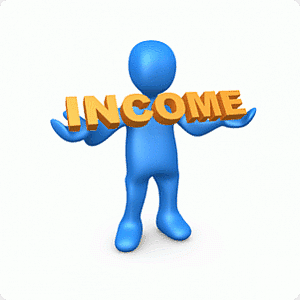A Path to Forever Financial Freedom
Not Only Expenses, You Also Have To Take Care Of Your Income
There's been an ubiquitous edition of articles on how you should take care of your expenses, but there were little mention of how you should also be taking care of your income, especially bad income.
The bad income is of course very subjective and it differs in definition from one individual perspective to another.
One way to differentiate "bad" income from "good" income is to quantify it through how some income is taxed more favorably than others.
For the majority of the people, income derived from employment or trade business are generally considered "bad" income because they would attract a chargeable tax to that income class. This is exception to employment income that you derived overseas assuming you are seconded there for a few years (you are subjected to the overseas tax legislation though).
Property income that you derived from renting out your premise would also be subjected to income tax, though you are able to deduct any allowable expenses off from the gross.
There are a few income categories under the Singapore tax jurisdiction which can be considered as "good" income.
One of them is dividends or interest income, which under the one-tiered tax system, is today exempted from the hands of the shareholders.
If you are also getting a windfall from either strucking lottery winnings, gamblings or also retrenchment package, they would also be exempted from tax as they are considered non recurring in nature.
Warren Buffett even voiced out his opinion on the tax legislation that he paid less federal taxes than the staff working in Berkshire who is paying out of the payroll income taxes more than him, which it doesn't make sense.
Another way to differentiate "bad" or "good" income can also come in the form of the number of hours spent to achieve that gross amount of income.
For example, if another employer offers you a 20% increase in your income but you have to spend a correspondingly 20% increase in your time spent, that may not qualify you as an incremental increase of "good" income.
The best incremental increase of "good" income is earned by spending lesser efforts over time, even if the actual amount of income earned remain the same.
If I had originally started by working 5 days/week and earning a gross income of $3k/month but today reduced to working 4 days/week and still earning the same gross income, I would considered that as a "good" incremental increase of my income.
A good friend of mine, Sim, retires early in his late 40s after accumulating sufficient "good" income through his portfolio of dividend stocks and decided to abandon his "bad" income so he can spend more time with his family. He's still getting richer over time than most of us even when he spends lesser time in the office than most of us.
I believe all of us have a role to play to take care of ourselves, instead of having the government or anyone else to look after us.
As much as you want to be a good law abiding citizen by paying taxes and contributing to the economy, or you could argue that you have passion and loyalty in working for the employer that you've been staying for over 20 years, you owe to nobody but yourself to answer when you get older. If you are the head of the family, that responsibility just quadruple to make sure you have enough for your family.
If you'd like to learn how you are able to accumulate "good" income through investing, we have an upcoming seminar for the Investors Exchange that would discuss on how you are able to do that.
You can find the link here at BIGScribe.
The last update is there's only 49 seats left for the early bird discount.
Thanks for reading.
If you like our articles, you may follow our Facebook Page here.
More articles on A Path to Forever Financial Freedom
Discussions
Be the first to like this. Showing 0 of 0 comments





















